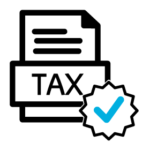International Centre for Asset Recovery (ICAR)
Norway is in the process of entering into agreements on support for the important work carried out by the International Centre for Asset Recovery (ICAR) and the UNCAC Coalition, an umbrella network of more than 100 civil society and academic groups and organisations.
Completion Status:
Commitment filtering:
The commitment is specific in that it identifies asset recovery as a concrete policy area, and names mechanisms to channel support in that area, such as ICAR and the UNCAC Coalition.
The measurable aspect of this commitment is whether Norway entered into the agreement in support of the 2017-2020 ICAR strategy, and made the grant for the UNCAC coalition project “Civil society participation in the UNCAC: building momentum for change”.
Evaluation:
In February 2019, Norad became a core donor to the International Centre for Asset Recovery (ICAR), embedded within the Basel Institute on Governance since 2006.[1] In this way, together with the UK, Switzerland, Liechtenstein and Jersey, Norway has supported ICAR’s Operational Strategies for 2017-2020 and 2021-2024[2] with a three-year grant. This contributes to ICAR’s work with authorities in developing and transition countries to strengthen their capacities to trace, recover and return stolen public assets, through financial investigations, training courses, e-learning modules and IT tools supporting investigators in tracing assets. As Norad points out, there is increasing demand for this type of technical assistance among countries willing to pursue corruption.[3]
At the end of 2018, Norway entered into an agreement with the UNCAC Coalition whereby Norad gave a grant to the coalition for a project entitled “Civil Society participation in the UNCAC: Building momentum for change”, implemented from November 2018 to December 2020.[4] The project’s general objective was to build momentum for effective anti-corruption reforms, to be implemented at national level following a transparent and inclusive UNCAC review process, reflecting civil society input and recommendations.
These agreements, dated after 2018, prove the fulfilment of this commitment by Norway. Following Norad’s evaluation of Norway’s anti-corruption efforts, working with these organisations serves the dual purpose of strengthening the country’s compliance with international norms and standards, and providing technical assistance to countries.[5] In addition, Norway had UNODC and the Corruption Hunter Network as delivery partners.[6] Under a recent agreement, for example, Norway will financially support the continuation of UNODC’s presence in Mozambique for three years.[7] In 2019, Norad also signed an agreement with the OECD worth NOK13 million (US$1.3 million) to support its anti-corruption and governance work for 2019-2021.[8] Norway’s partnership with these organisations was in part possible thanks to the transfer of NOK19 million (US$1.9 million) from the Ministry of Foreign Affairs to Norad, in support of the anti-corruption agenda in 2019.[9]
| Recommendations |
|
[1] Basel Institute on Governance, Norad becomes core donor to ICAR, https://baselgovernance.org/news/norad-becomes-core-donor-icar
[2] International Centre for Asset Recovery, Operational Strategy 2021-24, https://baselgovernance.org/sites/default/files/2021-03/ICAR%20Operational%20Strategy%202021-24.pdf
[3] Ibid.
[4] UNCAC Coalition, Grant agreement between the Norwegian Agency for Development Cooperation and UNCAC Coalition regarding QZA 18/0245 Civil Society participation in the UNCAC: building momentum for change, https://uncaccoalition.org/wp-content/uploads/Grant-agreement-Norad-%E2%80%93-UNCAC-Coalition-%E2%80%93-4-Nov-2018-%E2%80%93-QZA-180245.pdf
[5] Norwegian Agency for Development Cooperation (Norad), Evaluation of Norway’s Anti-corruption Efforts as Part of its Development Policy and Assistance, https://www.norad.no/globalassets/publikasjoner/publikasjoner-2020/evaluering/report-5-2020-evaluation-of-norway-anti-corruption-efforts-as-part-of-its-development-policy-and-assistance-main-report.pdf
[6] Ibid.
[7] United Nations Office on Drugs and Crime (UNODC), UNODC consolidates its presence and support to Mozambique with support from Norway, https://www.unodc.org/southernafrica/en/aml/norway.html
[8] Norwegian Agency for Development Cooperation (Norad), Evaluation of Norway’s Anti-corruption Efforts as Part of its Development Policy and Assistance, https://www.norad.no/globalassets/publikasjoner/publikasjoner-2020/evaluering/report-5-2020-evaluation-of-norway-anti-corruption-efforts-as-part-of-its-development-policy-and-assistance-main-report.pdf
[9] Norwegian Agency for Development Cooperation (Norad), Evaluation of Norway’s Anti-corruption Efforts as Part of its Development Policy and Assistance, https://www.norad.no/globalassets/publikasjoner/publikasjoner-2020/evaluering/report-5-2020-evaluation-of-norway-anti-corruption-efforts-as-part-of-its-development-policy-and-assistance-main-report.pdf
